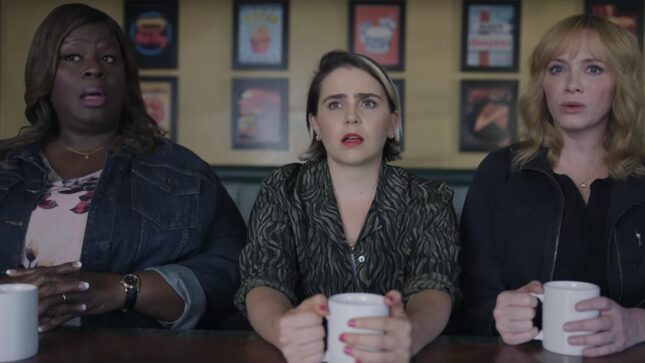

“Ain’t bitches supposed to be like, lifting each other up these days?”
The above is not quite a feminist manifesto, but it’s the closest the women of Good Girls are likely to get. Currently airing its third season, the NBC drama centers on three working-class women—Beth (Christina Hendricks), Ruby (Retta) and Annie (Mae Whitman)—who find themselves drawn deep into the criminal underbelly of their Michigan suburb after desperation leads them to rob a cartel-controlled grocery store.
The show, now in its third season on NBC, is tense, engaging and often fun, but it is so often marked by hubris that it’s difficult to resist the temptation to compare it to Mad Men or Breaking Bad. The difference is that Good Girls has three leads, and only one of them (Beth) is Walter White. Much of the show is centered around their ongoing deadly tango with the terrifyingly attractive Rio (Manny Montana). The women quickly move from trying to extricate themselves from a dangerous situation to voluntarily getting in deeper when the opportunity for a bigger payout presents itself. It’s the classic “too big to fail” dilemma of most anti-heroes on television. As viewers, we’ve agreed to the bargain that our protagonists are the heroes, no matter who gets hurt because of their actions, a classic antihero dilemma.
-

-

-

-

-

-

-

-

-

-

-

-

-

-

-

-

-

-

-

-

-

-

-

-

-

-

-

-

-

-

-

-

-

-

-

-

-

-

-

-








































